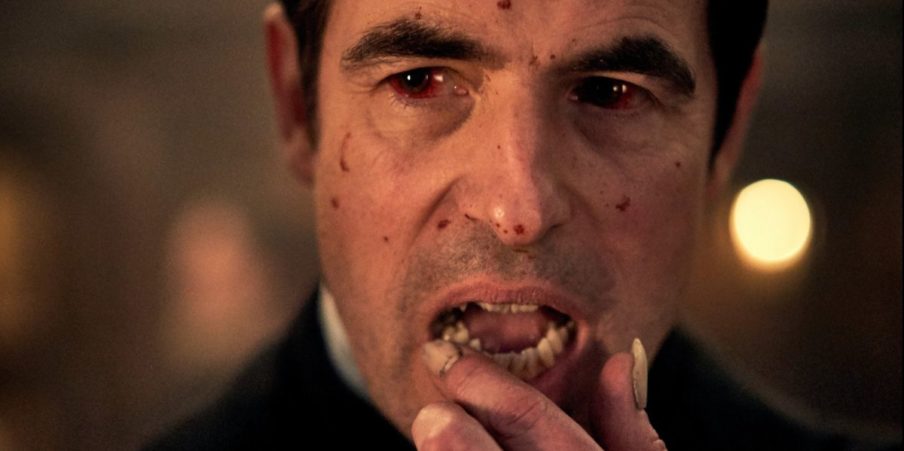Over the New Year, the BBC ran a new three-part version of Dracula. It was unusual to say the least. Dracula was played as ironic, post-modern, cynical and smart-alecky. Van Helsing, his nemesis, was no longer a man but (wait for it), a nun. And not just any old nun, but an atheist nun, at least at first. Later she seemed vaguely religious in an agnostic sort of way.
The series didn’t seem to know what to do with religion. Dracula wasn’t rebelling against God, because he didn’t believe in God, even though he is himself a supernatural being. At one moment the series was anti-religion, and in the next, it seemed to be more sympathetic. In fact, down the decades, the depiction of religion in Dracula and vampire stories has changed dramatically from believing and respectful, to cynical and hostile, to completely indifferent.
In the original Bram Stoker version, Professor Abraham Van Helsing, the vampire-hunter, is explicitly religious and uses the crucifix and the Eucharist as weapons against Dracula. That was in 1897, when society was much more religious than today.
But even in the 1977 BBC version of Dracula, with Louis Jourdan in the title role, religion is still taken seriously. It is very faithful to the Bram Stoker original. It didn’t project backwards the secular attitudes of its 1977 audience.
By the time Francis Coppola got around to his 1992 movie version, religion was treated with less reverence. Dracula was able to use his power to burn the cross, but it still had sway over him.
In vampire series like True Blood, made recently, religion has no power at all. The writers basically dispensed with it.
Religion does play a part in the new version, maybe because it starts in 1897. Turning Van Helsing into a nun was an interesting twist and, even though she is basically an agnostic, her fellow nuns are sympathetically portrayed.
Dracula himself is still scared of the cross, but on his own account that is only because he has picked up the fear of it from all the peasants whose blood he has drunk down the centuries.
But later the explanation is that it is a symbol of a man who was willing to die, and Dracula is scared to finally die, and that is why it terrifies him. However, it doesn’t have power because it symbolises the living God, but only because of what it means to him psychologically.
Still, maybe we should be grateful that in a series made in 2019 by the BBC religion still has symbolic power and isn’t completely derided or worse, ignored.
The waxing and waning of religion in vampire stories does, of course, mirror the waxing and waning of religion in society. For now, it is mainly waning.

















